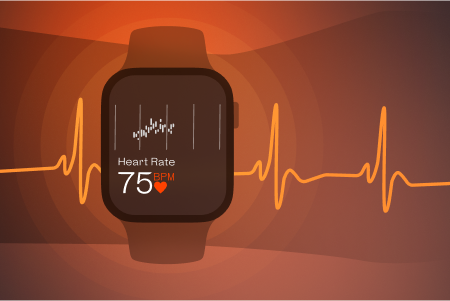
Measuring Resting Heart Rate
From manual pulse counts to the latest in app technology, dive into the transformative journey of heart rate monitoring
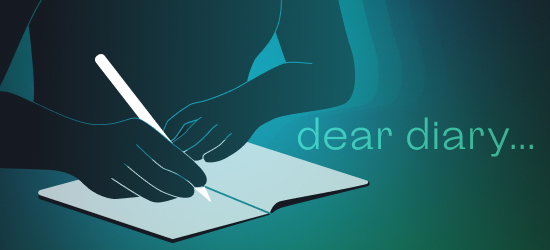
How can keeping a journal improve your life? Optimism, improved attention and immunity, and other benefits of putting things on the page, according to science.
Though studies on journaling tend to be small and short-lived, there’s enough evidence to conclude that writing down your thoughts and feelings is beneficial. Journaling helps cope with stress, lowers cortisol levels, reduces depression (and even asthma!) symptoms, and improves memory. The trick is to not just describe your day but focus on your emotional responses to it, be they traumatic or grateful. The former helps free your brain of anxiety and pain, and the latter helps you take note of joyful moments. There are many journaling methods that can improve your life.
Think of a situation from your past when something unpleasant happened to you, an event that produced feelings of anger, pain, sadness, guilt, or fear. Do you think about that event often? When you do, do you experience the entire range of those negative emotions again? Or do you tell yourself that “everything happens for a reason?” If you answered yes to any of these questions, it’s likely that you haven’t fully processed the experience. Now try to describe what happened in writing, expressing all those feelings on paper. There’s a good chance you’ll feel a sense of relief.
At least, that’s what happened in a study on the benefits of expressive writing — an exercise where you write down a traumatizing incident in free form, focusing on describing the accompanying emotions. The study’s participants, all of whom had been diagnosed with depression, volunteered to journal about their painful past experiences. The experiment only lasted for three days, during which the participants spent 20 minutes a day writing in their journals. After that, their depression was assessed using two tools: the Beck Depression Inventory test and PHQ-9.
Incredibly, participants showed a significant reduction in depressive symptoms, even a month after the experiment. Meanwhile, the study’s control group, who wrote down emotion-neutral everyday events, did not see any symptom improvement. More than 200 similar studies have been conducted, starting with a study by psychologist James Pennebaker in 1986. His colleagues continued his efforts with small, short-term studies of 40-100 participants lasting only 3-4 days. Though the studies had their limitations, probably due to cost, the research was conducted rigorously, with control groups for comparison, and the results should be considered accurate. Participants were asked to journal about their pain, anger, and anxiety. Most of these expressive writing studies focused on mental health, and they found that people showed a decrease in the stress hormone cortisol and stress and depression symptoms. They also seemed to fall asleep faster if they journaled before bedtime.
Why do we feel less anxious when we descend into negative emotions? Initially, Pennebaker explained this paradox: people tend to suppress traumatic experiences, but when they express their feelings on paper, they feel relieved. The truth turned out to be more complicated – writing can bring meaning to your experiences, and it also helps regulate your emotional response. Journaling pushes you to open up about your experiences and reach out to other people for support. It also helps you organize multiple disjointed memories into a coherent narrative, a mental process that helps you evade intrusive thought spirals.
Expressive writing also affects your cognitive abilities. It takes just three days of journaling about traumatic events to improve your working and autobiographical memories for at least several weeks and even up to 6 months. Emotion-free journaling, however, doesn’t have the same effect. This is because the more fragmented your recollections of a stressful event are, the more cognitive resources they consume. But when you describe this event, you form a more coherent storyline and stop constantly thinking about the event, leaving the freed-up emotional energy to be spent on other information.
When you down cocktails faster than your liver can metabolize, the concentration of alcohol in your blood rises, and you get drunk. The more alcohol you consumed, the harder it is for the liver to process it. Eventually, this waste buildups up in your body and leads to liver diseases such as steatosis (know as fatty liver), alcoholic hepatitis, and cirrhosis. As many as 47.9% of mortality cases due to liver diseases are alcohol-related.
Expressive writing improves physical health as well. The effect doesn’t occur instantly, as initially, your arterial pressure becomes elevated. But overall, prolonged writing means fewer doctor’s visits and reduced blood pressure. Researchers have also discovered that keeping a diary of stress and trauma reduces symptoms of asthma, rheumatoid arthritis, fibromyalgia, and Irritable Bowel Syndrome and improves recovery time after a biopsy. There is evidence that expressing negative feelings in a diary helps your immune system and makes vaccines more effective.
Expressive writing also affects your cognitive abilities. It takes just three days of journaling about traumatic events to improve your working and autobiographical memories for at least several weeks and even up to 6 months. Emotion-free journaling, however, doesn’t have the same effect. This is because the more fragmented your recollections of a stressful event are, the more cognitive resources they consume. But when you describe this event, you form a more coherent storyline and stop constantly thinking about the event, leaving the freed-up emotional energy to be spent on other information.
When you down cocktails faster than your liver can metabolize, the concentration of alcohol in your blood rises, and you get drunk. The more alcohol you consumed, the harder it is for the liver to process it. Eventually, this waste buildups up in your body and leads to liver diseases such as steatosis (know as fatty liver), alcoholic hepatitis, and cirrhosis. As many as 47.9% of mortality cases due to liver diseases are alcohol-related.
Classic expressive writing immerses the writer in their traumatic experiences and negative emotions. But there is also positive expressive writing, the goal of which is to journal about all the good things happening in your life. This method is beneficial for your mental health as well. For instance, in one study, participants with anxiety wrote about positive events in their life three days a week for 12 weeks. A month after starting journaling, their anxiety and depression improved, which was still the case when the participants were tested in another two months.
A different mechanism is at work here. When we describe negative experiences, we give them meaning, freeing up our minds. But when describing pleasant events, our attention is pulled towards positive things we had neglected by focusing on the negative. In reality, this method may not be equally effective – a study compared the effects of negative and positive journaling on memory and intrusive thoughts. While the former improved memory and eliminated rumination, the latter didn’t. Why? It’s possible that negative thoughts simply affect the mind more strongly than positive ones.
This doesn’t mean there’s no need to journal about the positive. Positive expressive writing has not yet been researched as much as the classic method. However, there have been many studies on the practice of gratitude, a technique very similar to positive expressive writing. Gratitude research has occasionally shown that it’s better for your mental health to write about the good instead of the bad. Besides, gratitude improves sleep and eating habits and makes us happier and even luckier.
When you down cocktails faster than your liver can metabolize, the concentration of alcohol in your blood rises, and you get drunk. The more alcohol you consumed, the harder it is for the liver to process it. Eventually, this waste buildups up in your body and leads to liver diseases such as steatosis (know as fatty liver), alcoholic hepatitis, and cirrhosis. As many as 47.9% of mortality cases due to liver diseases are alcohol-related.
Researchers think writing about stressful experiences in a blog is as beneficial as expressive writing. We also seem to feel happier if we fantasize and journal about our future goals. Participants in a study wrote either their ideal future or about a past traumatic event. Five months later, the participants were happier and less stressed, regardless of whether they wrote about their fantasies or focused on past traumas.
Neurobiologist and writer Daniel Levitin is even more direct: the best method is structured writing like a Bullet Journal (a diary in list form) where you write down the day’s events, challenges, and ideas. Levitin likens keeping a journal to having an external information repository: writing something down rids the mind of extra information, freeing the brain from juggling a lot of data simultaneously and saving cognitive resources. A bullet journal also helps you overcome the phenomenon known as the Zeigarnik effect, where you are likely to remember unfinished tasks better than completed ones. Writing down an incomplete task lets you delete it from your brain, and any anxiety associated with it dissipates.
A diary can also benefit those of us who aren’t used to taking pride in our accomplishments. If you take the time in the evening to remember what you accomplished that day, your day will take on more meaning, and you’ll be motivated to keep going. Ultimately, the benefits of a diary are limited only by our imagination. For instance, you could keep a sleep diary to sleep better by noting factors that could affect it (including helpful gadgets!) and finding cause-effect patterns between them and sleep quality. The same technique could work for a mood diary.
Journaling has shown to be an effective tool for breaking old habits and forming new ones. It’s helpful to reflect on decisions we’ve made (what we did and why we did it) in any form. Over time knowledge is accumulated, and we make decisions in line with what worked in the past or stop doing the things that didn’t work. This is what worked for Better Humans author Silvia Bastos. She thought up a 5-Bullet-Log system, writing a list of five things every day that answer the question, “What could I write about today that my future self would benefit from reading?” These five points can be broken down into categories: creative ideas, accomplishments, signs (like a feeling of dread), insights, and experiments (try giving someone a five-minute hug). These lists need to be written regularly and occasionally reviewed. For Bastos, it helped her overcome emotional overeating and find the time to get an education.
A different mechanism is at work here. When we describe negative experiences, we give them meaning, freeing up our minds. But when describing pleasant events, our attention is pulled towards positive things we had neglected by focusing on the negative. In reality, this method may not be equally effective – a study compared the effects of negative and positive journaling on memory and intrusive thoughts. While the former improved memory and eliminated rumination, the latter didn’t. Why? It’s possible that negative thoughts simply affect the mind more strongly than positive ones.
This doesn’t mean there’s no need to journal about the positive. Positive expressive writing has not yet been researched as much as the classic method. However, there have been many studies on the practice of gratitude, a technique very similar to positive expressive writing. Gratitude research has occasionally shown that it’s better for your mental health to write about the good instead of the bad. Besides, gratitude improves sleep and eating habits and makes us happier and even luckier.
Welltory x Reminder, 18 Oct. 2022

From manual pulse counts to the latest in app technology, dive into the transformative journey of heart rate monitoring
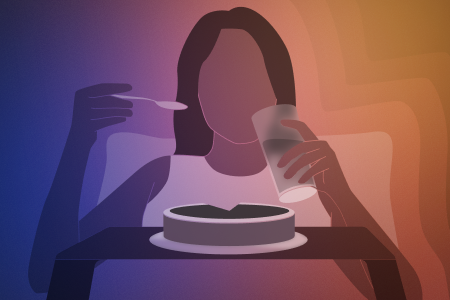
Discover the intricate relationship between late-night eating and its impact on sleep duration and quality
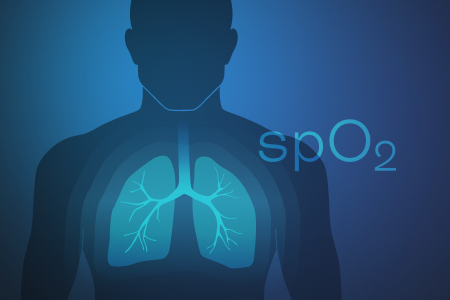
From boosting cognitive function to enhancing physical performance, discover the impact of blood oxygen levels on various aspects of health

The relationship between stress and productivity and how Welltory can help you plan better
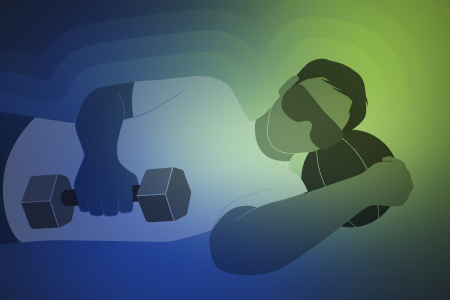
Does sleeping burn any calories, should you exercise right before bed and how much do you need to sleep to burn a 1000 Cal
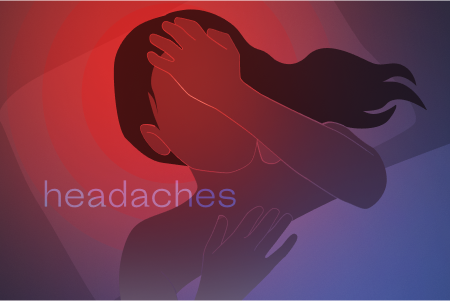
All you needed to know about headaches at night – types of nighttime headaches, their causes, possible treatment and how to avoid them.
 App Store
App Store
 Google Play
Google Play
 Huawei AppGallery
Huawei AppGallery
 Galaxy Store
Galaxy Store







